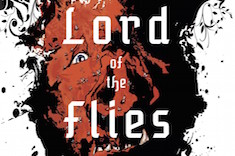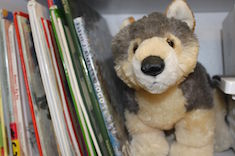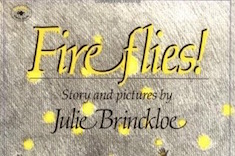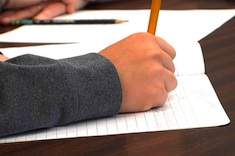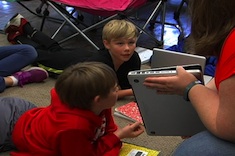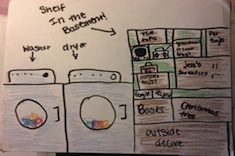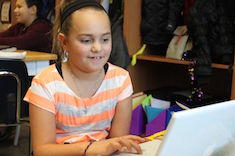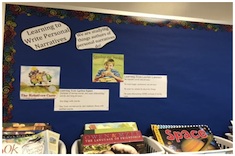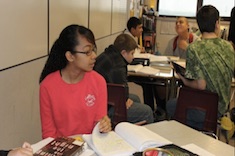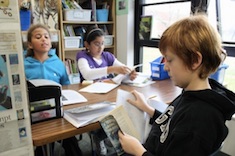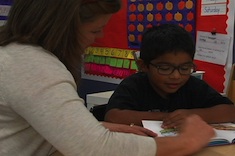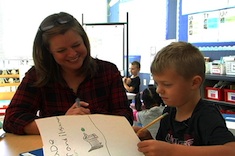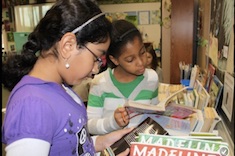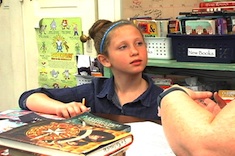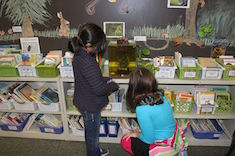Library
Choice Literacy Articles & Videos
The Choice Literacy library contains over 3,000 articles and 900 videos from 150+ contributors. Classic Classroom and Literacy Leadership subscribers have access to the entire library. Content is updated continuously, with five to six new features published each week.
Latest Content
Connecting Reading and Thinking Minilesson
Bitsy Parks uses read alouds from earlier in September to teach the key building block of comprehension—connections.
When a Book Doesn’t Work
Gretchen Schroeder is frustrated when a novel that has worked well for many years doesn’t appeal to her current high school students. Letting go of it is hard.
The Big Fresh August 12, 2017 Bingo
We look at the role of levels in reading programs in this week’s Big Fresh.
Conferring in First Grade: Reading Illustrations
Katrina Edwards helps a first grader use pictures to help her make sense of confusing text.
The Scarlet Level
Stephanie Affinito tells everyone at a staff meeting to write their weights and ages on sticky notes so that she can post the numbers for the group to view. When teachers balk at the request, she has the perfect opening to discuss why focusing on levels in classrooms is a bad idea.
Leveled Text Dilemma
"We don't have enough leveled texts!" is the cry from teachers. Heather Fisher helps them move beyond the school book room to more creative online resources to meet students' needs, and move beyond narrow definitions of text suitability.
Stuck at Level E
Shari Frost assists a teacher who is instructing a child stuck at level E, and in the process reveals some of the issues in treating all levels equally.
The Big Fresh August 5, 2017 Resolutions for a New School Year
We consider how to launch and sustain writers’ notebooks in this week’s Big Fresh.
Using Stories to Launch Writers’ Notebooks
If you're looking for the perfect launch for writers' notebooks this school year, you might want to begin with story. Tara Barnett and Kate Mills explain how.
Is Writing Essential?
Ruth Ayres shares some of the powerful connections between stories and writing workshops.
Conferring with Spencer: Writing Notebook Topics
Katherine Sokolowski helps fifth grader Spencer brainstorm topics for his writing notebook.
School-to-Home Journals
Are you considering school-to-home journals in your classroom this year? Jennifer Schwanke describes how these notebooks build community and literacy skills.
The Big Fresh July 29, 2017 Tickle Tickle
We look at playful planning of units of study in this week’s Big Fresh.
Environment Small Group: Habitat
Katherine Sokolowski leads a small group of fifth graders who have chosen similar topics for their projects in an environmental unit.
Humor Writing with Teens
Gretchen Schroeder develops a unit on humor writing that engages and delights her high school students.
Dabbling: Reviving a Focus on Play
Mary Lee Hahn finds a focus on play and "dabbling" renews student writers during a unit on narrative nonfiction.
Planning for a Narrative Writing Unit of Study
Franki Sibberson believes planning a unit of study should be just as much fun as planning a trip to Disney World. She explains her planning process for one of her first units of study, on narrative writing.
Creating a Manifesto
Ruth Ayres explains why writing a manifesto may be the best way to learn what you truly believe about teaching, learning, and literacy.
The Big Fresh July 22, 2017 Magic Wand
We look at what’s essential in this week’s Big Fresh.
My Five Objectives for the Start of the School Year
Gretchen Schroeder winnows many competing demands at the start of the year down to five clear objectives in her high school classroom.
The Big Fresh July 15, 2017 Growth Rings
We look at ways to infuse more joy into your work in this week’s Big Fresh.
Reading Workshop Non-Negotiables
Scott Jones finds working with a student teacher forces him to explain what the “non-negotiables” are in his reading workshop.
Connecting to Text: First-Grade Conference
Bitsy Parks confers with first grader Leo early in the school year, reinforcing the basic principle of making connections to text while reading.
Joy
Katrina Edwards deals with a frustrated writer on the verge of tears in her first-grade classroom. She realizes the element that is missing in her writing workshop is joy.
Celebrating and Nudging: First-Grade Writing Conference
Bitsy Parks takes time to celebrate first grader Colson’s finished writing, even as she nudges him to try a technique shared in the day’s minilesson.
Reconsidering Reading Workshop Routines
Andrea Smith realizes her normal reading routine will not work within the constraints of this year’s schedule. She makes some radical changes to ensure she and her students can have enough time to find the joy in reading and building a literate community.
Sketchnoting as a Response to Reading
Dana Murphy tries sketchnoting during professional development, and soon finds herself sharing the fun technique with students. They hone their skills during read alouds and while annotating texts.
The Big Fresh June 24, 2017 Meeting the Challenge
We look at book-a-day and other fun challenges in this week’s Big Fresh.
Building a Next-Read Stack
Katherine Sokolowski helps fifth grader Abby build her next-read stack of books.
The Benefits of #bookaday
Franki Sibberson finds the investment of five to seven minutes a day for #bookaday with her third graders is truly time well spent.
Browse Content By
Type
Category
- Assessment Tools
- Big Fresh Archives
- Booklists
- Choice Numeracy
- Classroom Design
- Common Core
- Community Building
- Conferring
- Content Literacy
- Digital Literacy
- English Language Learners
- Equity
- Family Relations
- Free Samples
- Guiding Groups
- Leadership
- Literacy Coaches
- Mentor Texts
- Minilessons
- New Teacher Mentors
- Podcasts
- Poetry
- Quote Collections
- Reading Strategies
- Self Care
- Struggling and Striving Learners
- Talking and Listening
- Teacher Study Groups
- Teaching Reading
- Teaching Writing
- Word Study and Vocabulary
Author
- Melissa Quimby
- Nawal Qarooni
- Gwen Blumberg
- Julie Cox
- The Lead Learners
- Hannah Tills
- Josie Stewart
- Ruth Metcalfe
- Mallory Messenger
- Becca Burk
- Jodie Bailey
- Vivian Chen
- Mary Brower
- Tiffany Abbott Fuller
- Stephanie Affinito
- Ruth Ayres
- Leigh Anne Eck
- Heather Fisher
- Shari Frost
- Julie Johnson
- Suzy Kaback
- Gigi McAllister
- Shirl McPhillips
- Melanie Meehan
- Cathy Mere
- Debbie Miller
- Tara Barnett and Kate Mills
- Tammy Mulligan
- Dana Murphy
- Bitsy Parks
- David Pittman
- Brenda Power
- Heather Rader
- Matt Renwick
- Mandy Robek
- Christy Rush-Levine
- Gretchen Schroeder
- Jen Schwanke
- Brian Sepe
- Katherine Sokolowski
- Stella Villalba
- Jennifer Vincent
Grade Level
Choice Literacy Membership
Articles
Get full access to all Choice Literacy article content
Videos
Get full access to all Choice Literacy video content
Courses
Access Choice Literacy course curriculum and training


